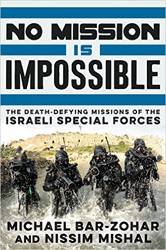Few books about Israel have received the praise that reviewers have given Ari Shavit’s My Promised Land. Shavit, an Israeli journalist, columnist for Haaretz, and commentator on Israeli television, draws on interviews, historical documents, and private diaries, as well as his own family’s experience, to provide an insightful history of Israel from the idealism of the early Jewish pioneers who founded the early Kibbutzim to the present. In the course of this history, Shavit provides balanced assessments of the Jewish state, from its founding in 1948 to its response to the unpredictable “Arab Spring,” its bittersweet relationship with the West Bank settler movement, the ongoing efforts to reach an accord with the Palestinians, and the threat of a nuclear Iran.
Writing about the 1948 war which followed Israel’s founding, Shavit notes that the expulsion of Palestinian Arabs remains a formidable obstacle to peace because the Arab world insists on the return of the refugees to their former homes in Israel. Shavit argues, however, that the removal of the Arabs was a necessary demographic necessity if there was to be a viable Jewish state. Elsewhere, Shavit contends that Israel as a Jewish state continues to arouse religious animosity among many Muslims because Israel’s very existence as a sovereign non-Islamic state is regarded as an affront to Islam, and thus “creates the inherent tension between Israel and the vast Islamic world.” As the Arab Spring moved from the possibility of a democratic Middle East to one wherein radical Islam has made inroads throughout the Middle East, let alone Iran, it prefigures the real possibility of future conflict between Israel and a religious fanaticism that threatens the survival of the Jewish state.
With regard to the current crisis over Iran’s pursuit of a nuclear bomb, Shavit argues that Israel was late in responding to the Iranian threat. He cites Prime Minister Ariel Sharon’s order to Meir Dagan, the head of the Mossad, in 2002 to defuse the Iranian menace. But by 2005, Dagan “promised his colleagues and superiors that Iran would not be able to spin even one centrifuge.” This arrogance continued in regard to Iran’s bomb-building capability until Benjamin Netanyahu became prime minister. Shavit writes, “unlike his predecessors, Netanyahu understood Iran… [he] was totally focused on Iran from the day he took office, [and] he knew that his life’s mission was to prevent Iran from going nuclear.” Although he credits Netanyahu for awakening Israel’s intelligence community to the danger of an Iranian bomb, Shavit is also critical of the current prime minister in regard to his vocal opposition to negotiation with Iran, his strained relationship with President Obama, his continuing threats to bomb Iran, and essentially overplaying his hand by his perceived intervention in the 2012 presidential election
Does Shavit’s book warrant the effusive reviews it has received? Absolutely. This even-handed volume helps us understand the threats facing Israel in the present as well as in the near future.





